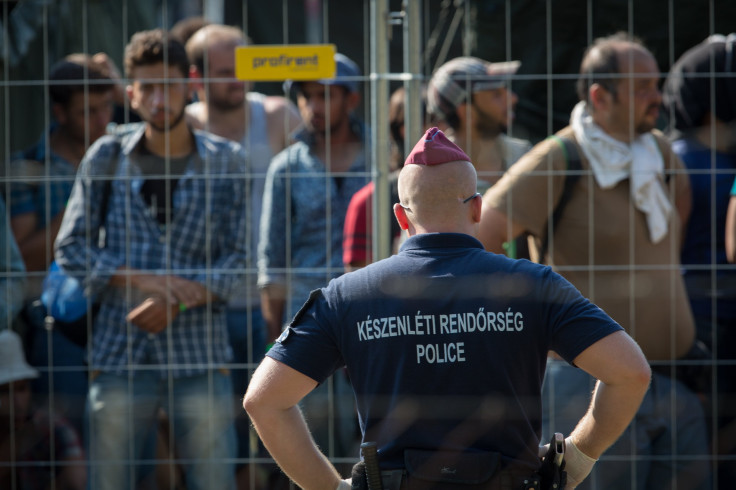Europe's Response To Migrant Crisis Attracts Chorus Of Criticism, As Death Toll Mounts

Two horrific incidents pushed the death toll from Europe's migrant crisis still higher this week, prompting a renewed chorus of criticism from diplomats, activists and experts at the EU's response to the situation.
At least 71 migrants, including four children, were found dead on Thursday, sealed in the back of a lorry parked on an Austrian freeway, and having likely suffocated. On the same day, at least 117 people drowned off the Libyan coast, after the boats carrying them sank in the Mediterranean. Almost 200 people were rescued, and dozens are still reported missing.
The deaths off the Libyan coast bring the number of people killed trying to cross the Mediterranean this year to around 2,500.
The U.N. has said "much more is required" to prevent the deaths of migrants making perilous journeys to Europe from the Middle East, Africa and Asia.
U.N. Secretary-General Ban Ki-moon called for nations to observe international law on asylum requests, and not to "force people to return to places from which they have fled if there is a well-founded fear of persecution."
"This is not only a matter of international law; it is also our duty as human beings," he said, according to a BBC report.
In addition, Justin Forsyth, CEO of international aid organization Save The Children told the Independent: “The tragedies we’ve seen in the last 24 hours highlight the failure of Europe’s migration and refugee policy. We should be ashamed to see children dying on our doorstep.
“No single nation can solve this problem alone -- EU leaders must agree a comprehensive plan that deals with root causes, takes on the trafficking gangs and puts in place an efficient, humane asylum system with burden sharing across all states and protection for vulnerable children,” he added.
Europe has been scrambling to put in place effective systems to cope with the influx of migrants, thousands of whom have journeyed to Europe this year by land and sea, and many of whom are fleeing war and persecution in countries like Syria and Eritrea.
Countries where the most migrants have been arriving, including Greece, Italy and Austria, have been criticized by human rights groups for devoting insufficient humanitarian resources toward migrant care, with conditions in Austria's largest refugee camp being branded “shameful” by Amnesty International.
In addition, some EU countries also have been accused of violating international law for their treatment of migrants, allowing them to pass through their territory and onto richer countries without screening them, or, like Poland and Slovakia, have said that they only want to take Christian refugees.
“While Europe is squabbling, people are dying,” Alexander Betts, a professor and director of the Refugee Studies Center at Oxford University, told the New York Times. “For the first time in its history, the EU is facing a massive influx of refugees from outside the region, and the EU asylum and immigration framework is poorly adapted for it.”
Other experts expressed skepticism that the latest round of deaths would push European leaders into developing a more cohesive policy that could ease the burden of countries on the front line of the crisis, as well as help ease the humanitarian crisis.
“I’d say that something major would have to happen. But something major already has happened,” Neil Quilliam, who leads the Middle East and North Africa program at the London-based think tank Chatham House, told the Washington Post. “It’s hard to see what it will take to actually change the policy.”
© Copyright IBTimes 2025. All rights reserved.






















